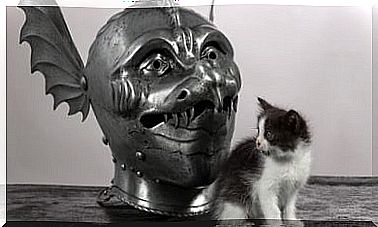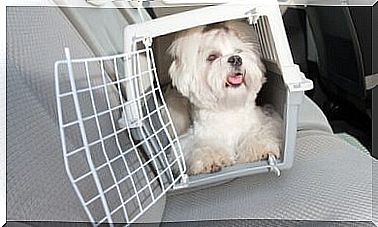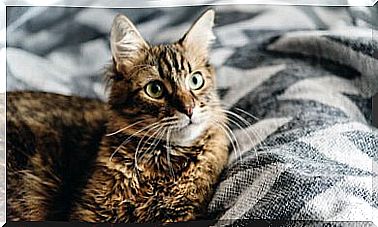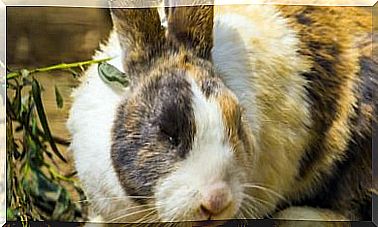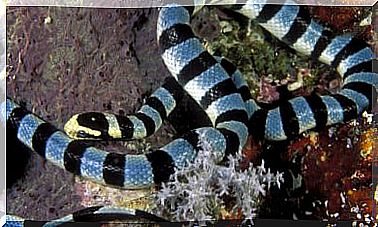Giardia In Cats: Symptoms And How It Is Transmitted
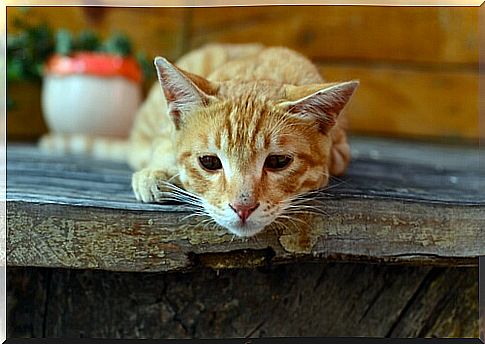
Our pets can suffer from different diseases throughout their lives. In the case of giardia in cats, it is a fairly common intestinal problem. Learn about the means of transmission and symptoms in the following article.
What is giardia in cats?
To begin, we must know a little about this disease caused by an organism known as giardia. It is a parasite that causes giardiasis, a disease that affects the small intestine of domestic cats. Over time, this organ becomes deformed and does not fulfill its objective, so the feline cannot absorb fats or vitamins.
If not treated in time, giardiasis can spread to the large intestine. When this happens, the pet’s entire digestive system is weakened. Therefore, it is essential to detect the disease as soon as possible.
Giardia Transmission in Cats
You should know that, in the event that your pet suffers from feline immunodeficiency syndrome or leukemia, the chances of suffering from giardiasis are higher, due to its low defenses.
This disease can appear in very small cats, but also in the elderly. In the first case when they have not yet received all the mandatory vaccinations. In the second, by a general weakness of his body.
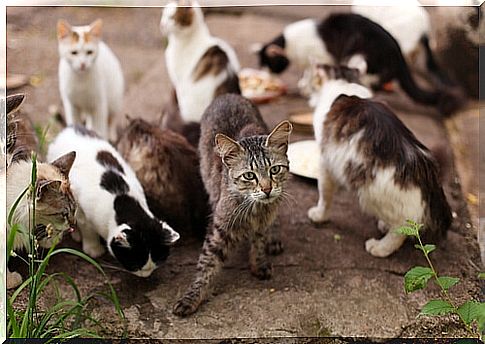
It is also necessary to know that giardia in cats is more common if they live with other animals of the same species or if they have contact with them. The main means of transmission of this parasite are:
1. Stool
If our cat sniffs the feces of another feline – which is infected – it can contract the disease. The same if he tramples on someone else’s fecal matter and then licks his paws.
2. Direct contact
Another way to transmit giardia is to get close to an animal that has these parasites. They can be from the same household or not. Pay attention if your pet tends to lick other cats and prevent this from happening.
3. Contaminated water
Sometimes, if a cat drinks from a puddle or a container where the water has been stagnant for a long time, it is likely that it is infected not only with giardia, but other diseases.
4. Lack of hygiene
It is true that cats are very hygienic and clean in general, but when they go out they could come back too dirty to clean themselves. You can choose to bathe it yourself and remove the strongest dirt.
What symptoms does giardia have in cats?
Although they cannot speak in words, animals can express what they feel through gestures, sounds, and attitudes. When a cat is sick, it will show less energy than usual, will avoid eating, and will spend many hours sleeping.
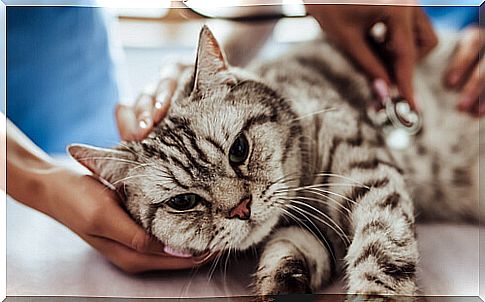
To detect giardia in cats you can pay attention to these signs and, if you identify any, immediately take them to the vet:
1. Gases
Flatulence will be more common and smelling much more foul than usual.
2. Diarrhea
Accompanied by gases you may experience abundant, sudden and liquid stools. Be careful because diarrhea causes dehydration: try to get him to drink water.
3. Loss of appetite
This is one of the clear signs that something is wrong with your cat. If you don’t want to eat, you can try the wet feed, which is more appetizing. If the lack of appetite continues, do not wait long before taking him to the professional consultation.
4. Vomiting
Since giardia gradually destroys the cat’s digestive system, stomach and intestinal disorders will be the order of the day.
5. Fatigue
The animal will also feel listless, it will not feel like playing or getting out of bed. The fatigue will be very visible, even if it has only moved a little from its place.
Finally, it is good to know that giardia in cats is treated with specific medications and that the treatment can last even a couple of weeks. With the appropriate doses and a guarded hygiene, the animal will recover in a short time.


